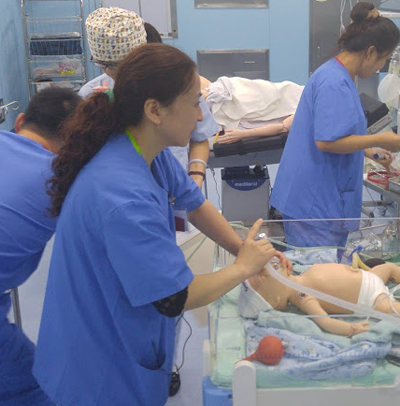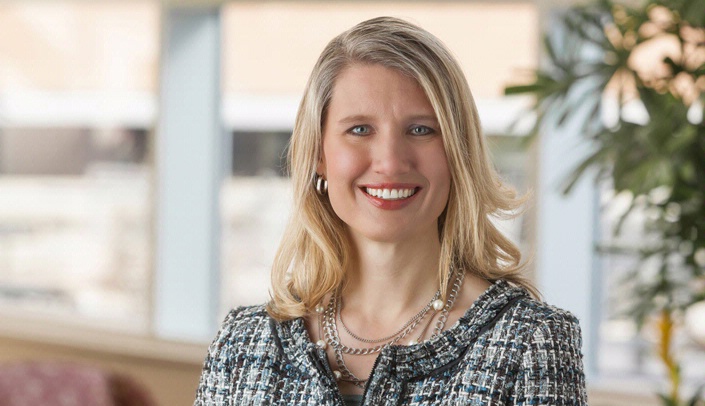UNMC’s ongoing partnership with several Chinese universities is starting to pay dividends. And it could even be saving lives.
In October, Ann Anderson Berry, M.D., Ph.D., associate professor, pediatrics newborn medicine, traveled to Shanghai, China, to provide simulation training on neonatal resuscitation, an important skill that could determine if a newborn baby lives or dies.
 |
Physicians in Shanghai undergo neonatal resuscitation training. |
“It’s a huge hospital operating under high population pressures,” said Dr. Anderson Berry, who is medical director of the Neonatal Intensive Care Unit (NICU) and the Newborn Nursery for Nebraska Medicine. “They have a daily census of 100 babies in their NICU with only six nurses in the unit. We have 25-30 babies in our NICU with about 14 nurses.”
Dr. Anderson Berry brought along a T-Piece Resuscitator, a sophisticated device that is considered to be state-of-the-art in the NICU. The resuscitator is flow-controlled and pressure limited. It offers the ability to more consistently measure and target inspiratory and expiratory pressures in newborns. It is a device with which most physicians in China are unfamiliar.
A total of 32 physicians from all across China came to Shanghai for the training. Most of these physicians were neonatologists or obstetricians/gynecologists. “Some of them even traveled through a typhoon to get there,” Dr. Anderson Berry said.
After reviewing current Neonatal Resuscitation Program Guidelines, the Chinese physicians trained for three days in a simulation lab using mannequins. They were given high-risk scenarios such as a premature baby born with an infection, a baby born with the umbilical cord wrapped around the neck, or a meconium aspiration in which the baby’s first feces goes into the lungs and blocks the airway.
“As soon as a baby is born and doesn’t have a good heart rate, it’s critical that immediate action be taken,” Dr. Anderson Berry said. “It’s all about getting them to breathe and opening their lungs.”
Dr. Anderson Berry said the simulation training was well received. She has been invited back in 2017 to train more Chinese physicians.
“It was extremely gratifying,” she said. “It truly felt like I was making a difference.”
